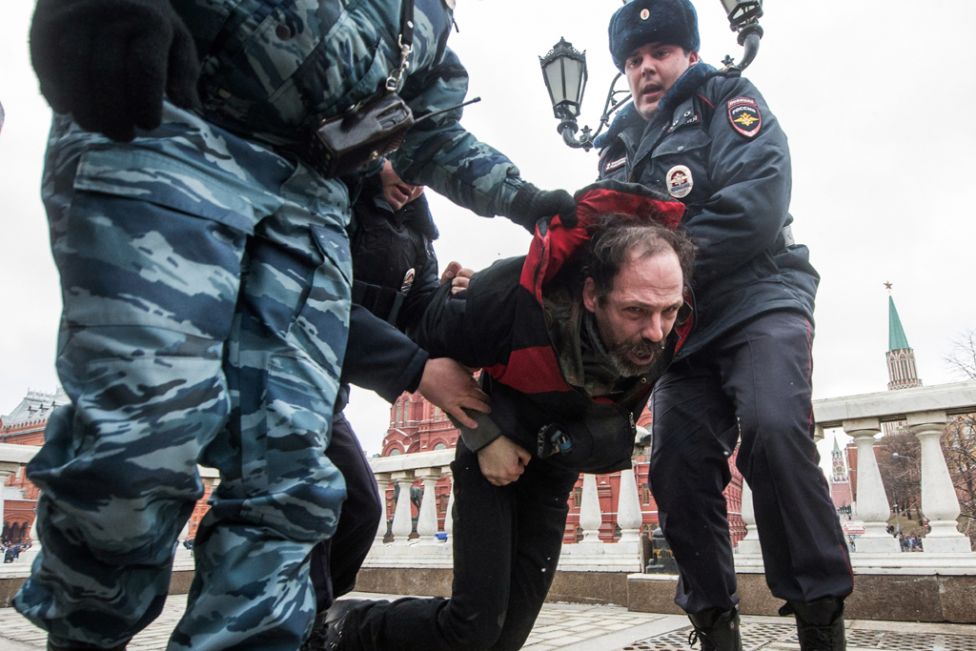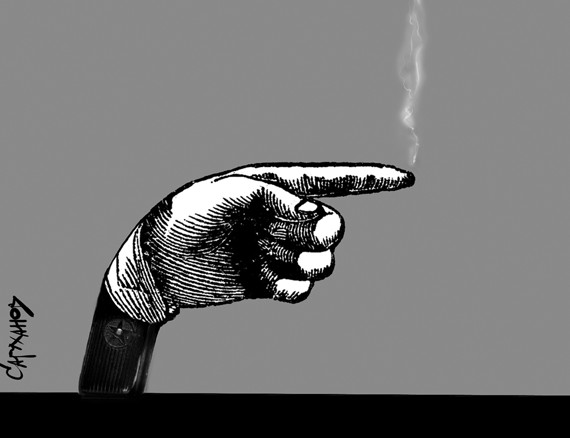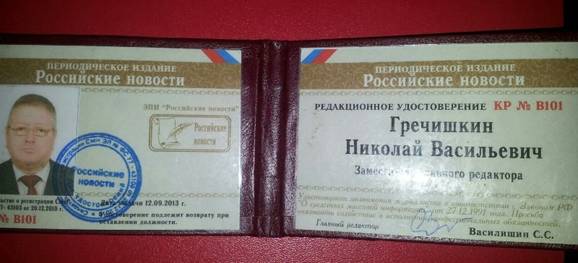In August 1991, just after the failure of the August Coup that had unsuccessfully tried to save the USSR, and Gorbachev’s comeback to Moscow, The New York Times proclaimed that Russians were ready to undertake “a colossal task of civilizing their country.” Larry Wolff, a Professor of History at the New York University, noted later in his book on the historical perceptions of Eastern Europe that the above quote in the New York Times was an unintentional quotation from Voltaire's book "Peter the Great" written in the 18th century. Larry Wolff describes this as a notable example of the power of ancient formulas, according to which Russia is always only at the threshold of civilization, but will be civilized soon — by emperors Peter I, Catherine II, and, from more recent times, by Gorbachev and Yeltsin.
Wolff also explains how the perception of Eastern Europe and Russia as a conqueror of Eastern Europe was formed in the West. The division into Eastern and Western Europe was created just after the success of the West due to the Enlightenment and colonization. In the 18th century, this new division substituted the previous one that divided Europe into North and South. Such divisions are a complex mixture of real facts and political images.
Neither should these historical interpretations be taken as a fact defining the eternal fate of countries and peoples; nor should they be ignored airily, as if any nation can cut off the past in one moment and transform radically without any time-consuming work. In the case of Russia in 1991, the country had to deal with a weighty Soviet legacy, such as KGB officials in particular, who didn’t want to lose their power. The mistake of the West was that it assumed that the political collapse of the Soviet Union meant also its immediate mental collapse. In fact, total neglection of the value of the human being can easily coexist with a market economy and western-style media in Putin’s regime.
Old system in new bottles
Despite the failure of the August coup in 1991 and democratic reforms started by Boris Yeltsin, the KGB and military officials didn’t disappear, nor did Soviet disrespect to human rights which Yeltsin did nothing to change. He limited his reforms to the economic domain, with privatization serving the interests of oligarchs and criminals. The KGB, renamed FSB in 1995, became closely interrelated both with racketeers, who seized property as soon as it became private, and oligarchs loyal to the president, whose businesses bought favorable conditions for development by bribes.
In 1993, in the conflict with parliament Yeltsin used military power to shoot demonstrators near the Ostankino Telecenter, and tanks to seize the White House where deputies were hiding. Such acts led to a psychological and moral victory of security forces over newly emerged democratic power and individual freedoms.

According to David Satter, the defeat of the Parliament was a trigger that allowed an unprecedented scale of violence and property seizure by local officials and their security forces.
Such was the cauldron of the post-Soviet chaos where a new power of President, oligarchs and security forces emerged: no longer ruled by communist ideology, but by the individual drive for power and wealth.
Paradoxically, new rules were unacceptable at least to some devoted communists who served in the KGB and continued in the FSB. The story of one of them, Mikhail Trepashkin, was told by Scott Anderson, an American war correspondent. In the interview, Mikhail Trepashkin talked about a huge number of KGB officers who unexpectedly entered the business sector, cooperated with the very mafia they had previously been fighting against. Others went to work as advisors or guards for new oligarchs who praised Yeltsin’s democratic reforms. It was more and more difficult to distinguish crime from government actions.
“In one case after another,” Trepashkin said, “a plot was noticed. The mafia worked with terrorist groups, but then the trail suddenly led to some business group or even to the government ministry. At that moment it became unclear – is it still a criminal case or an operation with formal approval?”

At the end of 1994, the privatization system changed to an ordinary financial one, and there were already people who could take part in it. Prices for most of the enterprises were very low due to a small number of people who were allowed to participate in the auctions. Finally, privatization for bank credits started. Owners of new banks gave cheap loans to the state that was starved of money due to an economic crisis. When the government could not repay its debts, it gave banks shares of state enterprises. Of course, many more shares were given than were really needed if they were sold openly on marked and debts were repaid in cash.
After 1993, a new authoritarian presidential regime stepped on the slippery slope of violence in order to preserve its power. The regime, based on crime and corruption, where the government was ruled by the president and his oligarchs, could not withstand democratic elections as well as allow freedom of speech in the country.
However, Russian elites, though willing to preserve power, didn’t want to lose all the benefits of global freedom, attained for rich people with the collapse of the Soviet Union and democratization. Therefore repression and restriction had to take a hybrid form:
- a free market but with the FSB and police taking a “tribute” for protection;
- freedom of speech but with invisible limits on criticism with potential death penalty for transgressors who dared to cross the red line;
- free elections but parties not registered because of the 39 ‘false’ signatures among thousands brought to the registration office;
- Putin protecting Russians worldwide yet killing hundreds detained by terrorists in the school in Beslan.
Finally, Russia had no more totalitarian ideology, but preserved totalitarian security services with the role of “targeted killing” of those who posed “a terrorist threat".
On the one hand, it has invested billions in western-style media, while all main TV channels were seized by oligarchs loyal to Putin or directly by the state immediately after Putin became president.
- In 2001 and 2002, NTV was "sold" by oligarch Husynsky to Putin-loyal Gazprom-media;
- ORT was sold by another oligarch Berezovsky to Putin-loyal Abramovich;
- TB-6 was liquidated by court order.
These were the three Russian channels with the highest number of viewers in Russia.
David Satter, an American journalist who investigated Russian state crimes in Moscow
All these semi-totalitarian methods, hidden from the western audience and usually interpreted by Russian media as Chechen terrorist acts or distorted at all, were investigated in detail by David Satter in his last (2016) book The Less You Know, The Better You Sleep: Russia's Road to Terror and Dictatorship under Yeltsin and Putin. The book is a kind of summary of all the author’s investigations proving that Putin and FSB are responsible for the most brutal killings of their compatriots in contemporary Russia.
David Satter claims that the Western audience oscillates when it comes to bloody crimes arranged or approved by the Russian government,
“because they [people from the West] approach Russia with western criteria, not understanding that it’s another world, based on another system of values... For a person from the West, it’s self-evident that an individual is q value...”


David Satter was expelled from Russia by the “competent authorities” in 2013. As he writes himself, the only reason why the government did not expel him earlier was the need to preserve a democratic face in the eyes of the West. Usually, he was an example of the “freedom of expression” amid dozens of Russian journalists killed or detained.
He started to work in Russia in 1976 as a correspondent for the Financial Times and since then has written a number of publications on crimes committed by the regime, including the Russian department bombings in 1999, the bloodbaths with Chechen terrorists who seized the Dubrovka Theater in Moscow and the Beslan school in 2002 and 2004 respectively, events that resulted in the deaths of hundreds of civilians.
The Russian apartment bombings — if Putin didn’t do this, he must open sources for an independent investigation
The Russian apartment bombings in September 1999 consisted of four explosions in residential blocks of flats in Moscow, Buynaksk and Volgodonsk that killed 367 people. The official version, as claimed by Russian authorities, was that Chechen terrorists arranged these explosions in order to take revenge for the battle in Dagestan that took place less than a month previously.
After the explosions and the beginning of second Chechen war the electoral support for Putin rose from 2% to 53%.
However, this version was too convenient for the Russian president Yeltsin and prime minister Putin, who used the bombings as a justification for their invasion of Chechnya, as well as to raise Putin’s electoral support on a wave of fear before presidential elections.


In August 1999, Yeltsin appointed Putin, then director of the FSB, to the post of prime minister. Putin became an acting president a few months later when Yeltsin decided to resign before the end of his term. Putin was elected as the next Russian president in 2000, and his first signed decree was on immunity for Yeltsin.
The fear of further explosions and Chechen aggression was so powerful that thousands of people were sleeping outside in the streets, fearing to enter their homes. Simultaneously, Putin was portrayed as the savior of the nation. In 1999 the electoral support for Yeltsin and Putin was only around 2%. However, after the explosions in the blocks of flats and the beginning of the second Chechen war, electoral support rose to 53.4% of votes on the elections.
However, an incident in the city of Ryazan undermined official explanations of the events as Chechen terrorist acts. After the fourth explosion in Volgodonsk, a fifth bomb was discovered by police in a block of flats in Ryazan, and the explosion was prevented. When bomb defusers checked the bomb, the explosive was detected as RDX — the same as in the previous explosions.
Suspected terrorists were detained by police soon but appeared to be agents of the FSB. Two days later, the director of the FSB Nikolai Patrushev explained that the incident was “a part of training."
In the media, the incident was shaded by the escalating war, as Russian aircraft started bombarding the Chechen airport in Grozny just two days after the incident in Ryazan. In one week, Russian armed forces entered Chechnya and the war dominated the media agenda entirely.
Along with the detention of the FSB agents, there was much indirect evidence that pointed towards the FSB. This was presented in a number of publications and systematized in the book “FSB blows up Russia” published in Russian in 2002 and in English only in 2007 under the title “Blowing Up Russia: Terror from Within.” The English version was published after one of the authors, Alexander Litvinenko, was poisoned by radioactive polonium-210 and died in 2006.

Nonetheless, some authors claim that the Russian apartment bombings were indeed Chechen terrorist acts with no assistance from the FSB. Such is the reasoning of Evgeny Filatov, described in his article on Medium. He claims that detained FSB agents could indeed perform orders in the framework of training. The test proving that the explosive was RDX was inaccurate, according to the author, and the bomb was a dummy.
However, the question still remains why the Russian authorities banned the book “FSB blows up Russia” and confiscated more than 4,000 copies if they were innocent.
David Satter claims reasonably that if Russian authorities are indeed not involved, then they can clear their reputation easily by providing all requested documents and assisting in the open investigation. However, as long as the secrecy around the Russian apartment bombings lingers, suspicion cast towards Putin and his regime is justified.
Here is how the 1999 Russian apartment bombings led to Putin's rise to power pic.twitter.com/FGlLPTOPY3
— Insider Business (@BusinessInsider) October 16, 2018
The tragedy of the Kursk submarine – no action was taken to rescue sailors in order to save Russian pride and diminish the tragedy
Unfortunately, the story about the apartment bombings is not the only case where Russian authorities neglected human lives. Notable was the case of the Russian Kursk submarine that tragically sank during military training in the Barents Sea on 12 August 2000, just three months after Putin became Russian president. Leaving aside the causes of the tragedy, which have been disputed since the official Russian version was criticized, the most shocking aspect was the reaction of the government and President to the catastrophe. It brings to mind the 1986 Chernobyl catastrophe where the Soviet government wanted to conceal the real consequences as long as possible and endangered the health of thousands of people bussed to street demonstrations as if nothing had happened.

When “Kursk” sank, two blasts were noticed. The second was the equivalent of an earthquake measuring 4.2 on the Richter scale. It was detected even far away in Alaska. However, the Russian Navy initially understated the incident. Only nine hours after the boat sank, Northern Fleet commander Admiral Popov ordered the first search for the submarine and only 12 hours after the accident it was reported to Kremlin.
According to The St. Petersburg Times, US National Security Adviser Sandy Berger and Defense Secretary William Cohen were told about the tragedy much earlier than Kremlin officials and Putin. Unacceptable was Putin's decision to continue his vacation on the Black Sea when he was told about the accident.
The whole madness of Russian authorities revealed itself when Putin rejected international help proposed by the British government, and also by France, Germany, Israel, Italy, and Norway the next day after the accident. Only in the fifth day, after a number of unsuccessful attempts to reach the submarine by Russian rescue teams, and because of growing international pressure, Putin accepted the help from Norwegian rescues.
95 crewmen of “Kursk” died immediately but 23 gathered in the ninth compartment and even left a note. They maintained the level of oxygen by chemical oxygen cartridges at least for several hours, if not more. There were chances to save them if the reaction was immediate and all possible measures and help were accepted without any excessive pride.
Terrorist attack at the Dubrovka Theater in Moscow and School in Beslan demonstrate the real value of hostages’ lives
Crueler still was the behavior of the FSB, directly controlled by Putin, in the terrorist acts at the Dubrovka Theater (2002) and School in Beslan (2004).
The Dubrovka Theater was seized by around 50 Chechen terrorists, with almost 900 hostages being inside. The terrorists demanded an end the war in Chechnya. Otherwise, they threatened to blow up the people in the theater.
The Russian government was reluctant to negotiate. Then, on the morning of the fourth day of the hostage drama, the FSB started to pump gas into the theater through the ventilation system. People inside fainted because of the gas, including the terrorists. The FSB were able to enter the building without any resistance and kill all the terrorists in a few minutes. That operation was portrayed by the media as a brilliant victory for Putin and his team.
It would indeed be so if people were the real value for Putin, not only a tool of propaganda. After the FSB had liquidated the terrorists, 900 people were still lying unconscious in the building and had to be taken away immediately. However, not enough staff, as well as ambulances, were ready to do so. Unconscious people were taken to hospitals by buses, with many people simply laid out on the bus floors. Some died due to being squashed by other bodies.

As the final demonstration of the real priorities of the regime, the security service did not say what kind of gas was used. Because of this, doctors were unable to prepare a proper antidote in advance.
Official data reported about 129 people dead, although the real number may be much higher.
While examining these events, David Satter also notes that prior to the terrorist acts certain FSB officers had meetings with terrorists and did not prevent risks reported in advance by the former FSB agent Mikhail Trepashkin, which was very strange. However, no proper open investigation was allowed.
The other terrorist act in the Beslan school took the lives of at least 334 people, many of whom were children. On 1 September 2004, Chechen terrorists led by Ruslan Huchbarov seized a school in Beslan and packed more than 1,000 hostages into the small gym, only 20 by 25 meters in size. They demanded the withdrawal of Russian troops from Chechnya.
The terrorists passed a paper note where they wrote the number of hostages and list of four persons who they would like to negotiate with. However, the Russian government did not open any proper negotiations, while the state television reported that there were only 120 hostages in the school.
On 2 September Putin said on TV that no one will try to take the school by force and the lives of hostages are the first priority. And the next day special forces started the assault. The school was hit by grenade launchers and even by tanks. Because of that, a fire started on the roof of the gym. Many people were burned alive in the gym. Others were forced by terrorists to go to the dining hall where they were used as a human shield. Russian soldiers did not hesitate to shoot until all terrorists were killed.


In the ongoing conflict with Ukraine, with the diplomatic war and western sanctions being even more important than direct military battles, it is important to remember what the real value of human life is for Putin’s regime. In times when some politicians, both in Ukraine and in Europe are ready to compromise with Russia, I would like to quote words of Ronald Reagan from his “Evil Empire” speech, which unfortunately match the contemporary more precisely every year that passes.
I urge you to beware the temptation of pride - the temptation of blithely, declaring yourselves above it all and label both sides equally at fault, to ignore the facts of history and the aggressive impulses of an evil empire, to simply call the arms race a giant misunderstanding and thereby remove yourself from the struggle between right and wrong and good and evil.
RONALD REAGAN, “EVIL EMPIRE SPEECH” (8 MARCH 1983)
Read more:
- How journalism died in Russia. A Russian journalist describes
- History repeats in Russia as FSB raids human rights activist from KGB-repressed family
- Russia’s FSB no longer ‘new nobility’ but only tool like old KGB, Soldatov and Borogan say
- Like his ‘hybrid wars,’ Putin’s ‘hybrid repressions’ are all too real, Tuomi says
- ‘Putin’s GULAG more horrible than Stalin’s,’ researchers say
- The many ways terror serves the regime in Putin’s Russia
- Three lessons from the Kremlin murders





